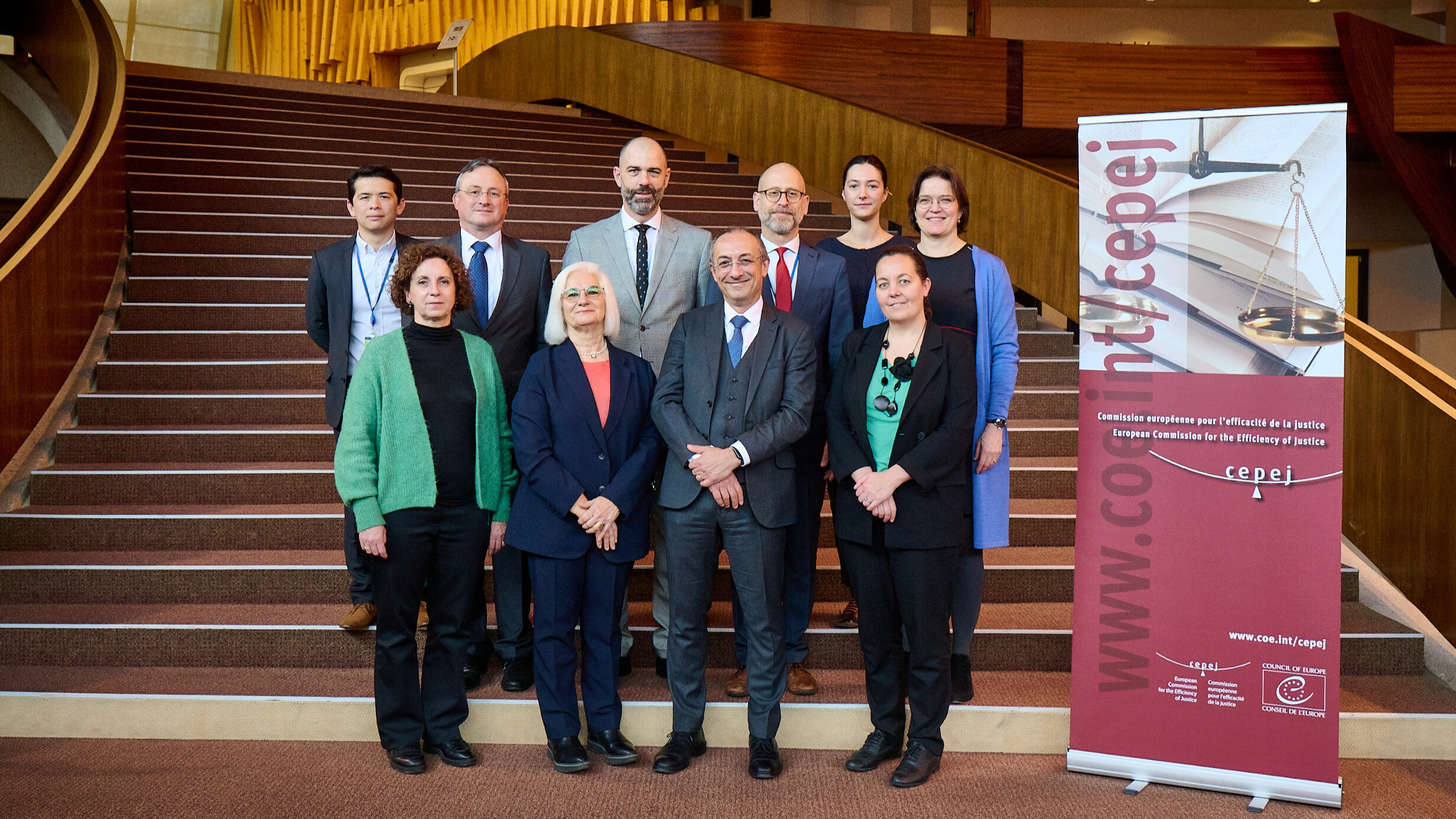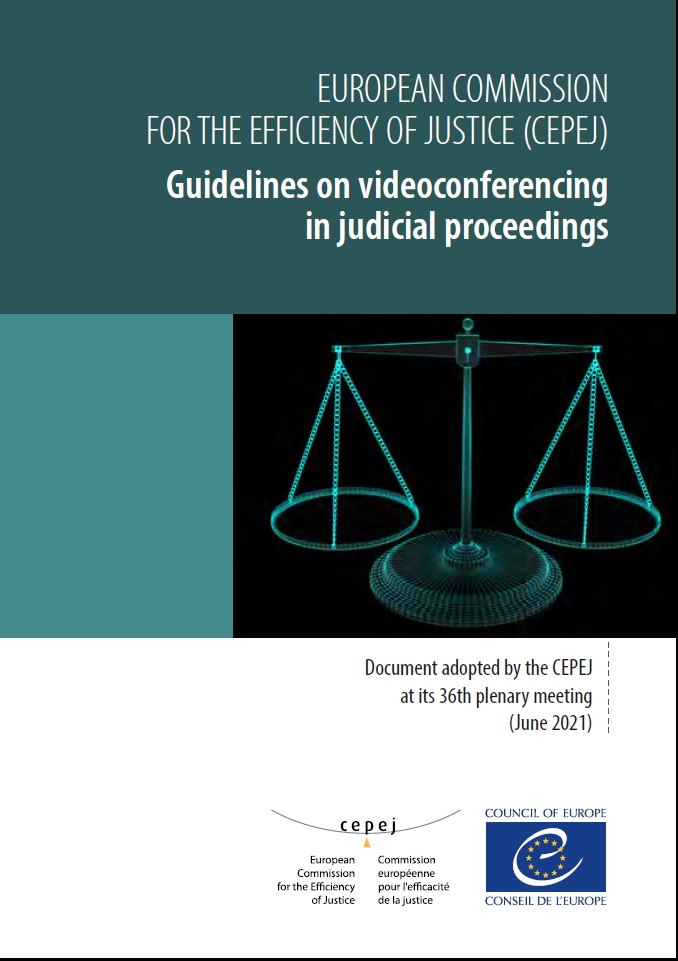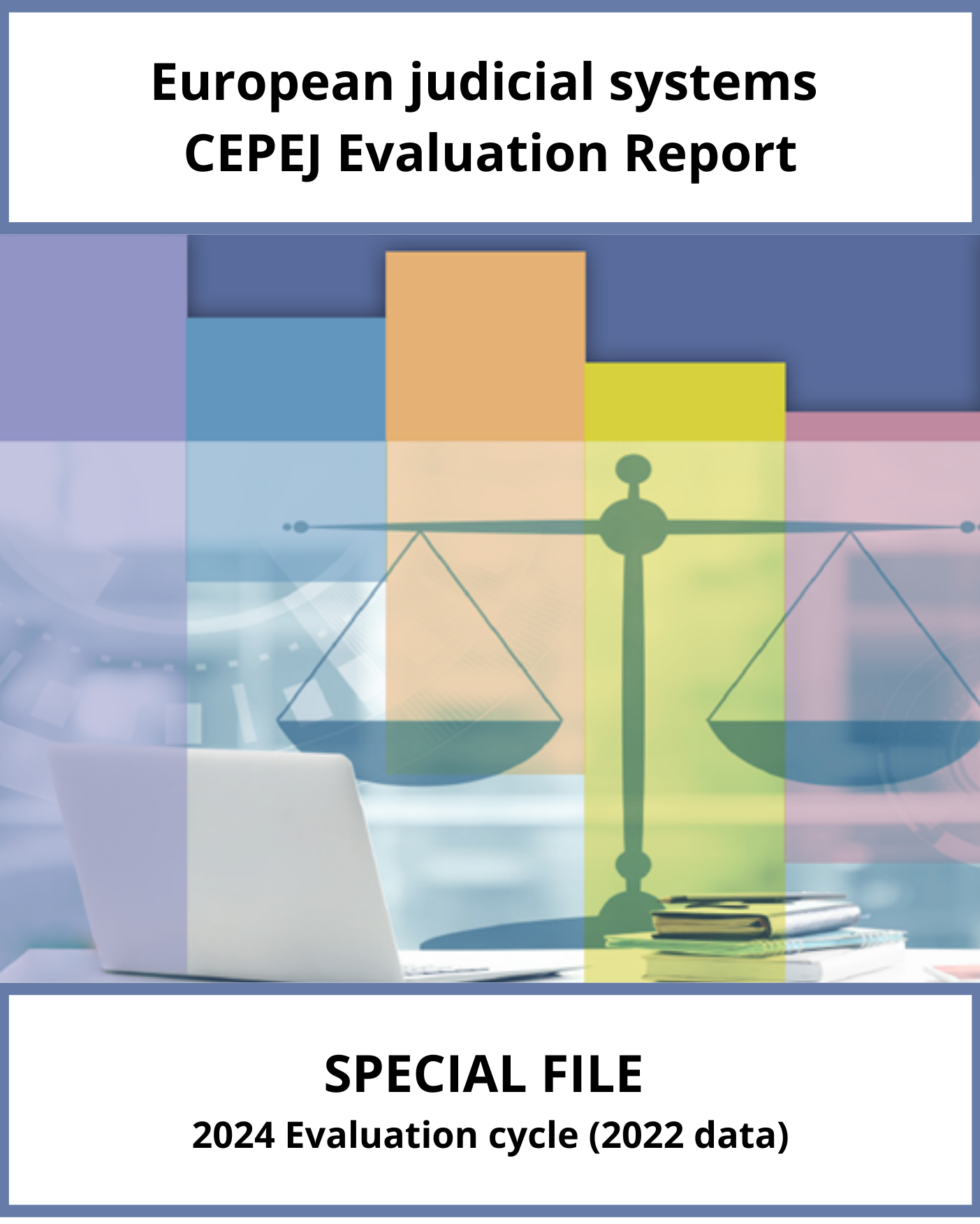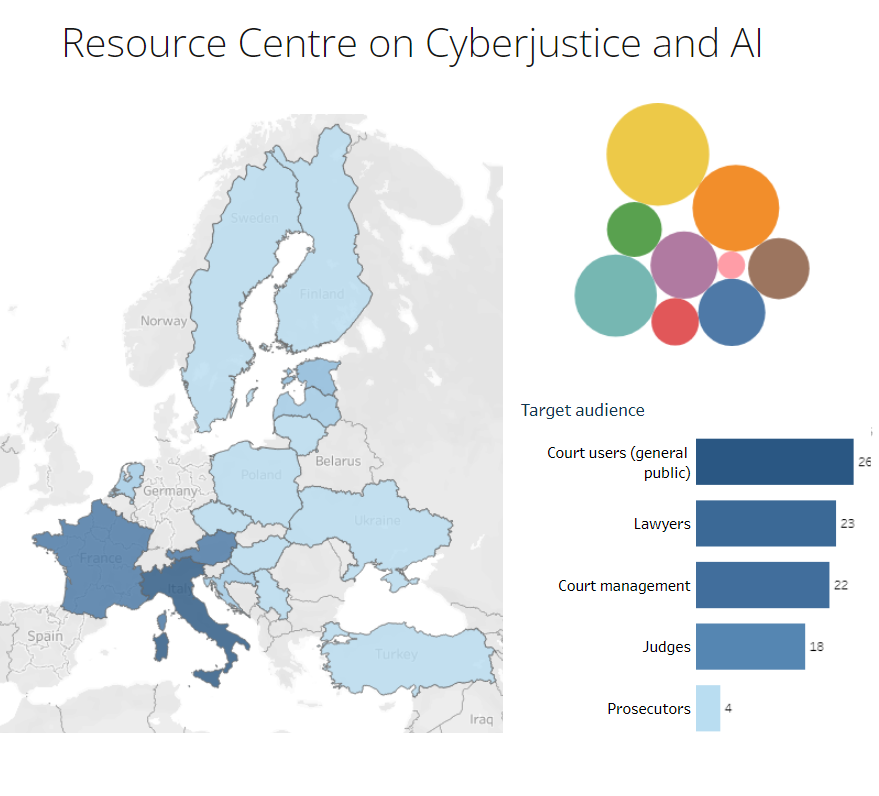Cyberjustice and artificial intelligence used in the field of justice
Developments in digital justice appear as real opportunities to improve the quality and efficiency of justice. At the same time, they constitute new challenges for the respect of the fundamental principles of the trial, essential guarantees of our judicial systems, such as the primacy of the rule of law, the independence and impartiality of the judge, the principle of adversarial proceedings or the protection of fundamental freedoms.

The Working Group on Cyberjustice and Artificial Intelligence (CEPEJ-GT-CYBERJUST), set up by the CEPEJ at its 33rd plenary meeting in December 2019, is entrusted by the CEPEJ with the task of "developing tools with a view to offering a framework and guarantees to member States and legal professionals wishing to create or use Information and Communication Technologies and/or artificial intelligence mechanisms in judicial systems in order to improve the efficiency and quality of justice". This work should be implemented in co-ordination with the work of other Council of Europe bodies in this field, in particular the European Committee on Legal Co-operation (CDCJ) and the Committee on Artificial Intelligence (CAI).
The tools to developed by the Working Group concern topics as varied as quality criteria for videoconferencing, artificial intelligence used in alternative methods of dispute resolution or enforcement of court decisions or court proceedings in a digital context.
The group’s work is guided by the 2022 – 2025 CEPEJ Action plan: “Digitalisation for a better justice”, emphasizing the CEPEJ’s commitment to accompany States and courts in a successful transition towards digitalisation of justice in line with European standards and in particular Article 6 of the European Convention of Human Rights.
 Working Group on Cyberjustice and Artificial Intelligence (CEPEJ-GT-CYBERJUST)
Working Group on Cyberjustice and Artificial Intelligence (CEPEJ-GT-CYBERJUST)
Guidelines on the online publication of judicial decisions (12/2024)
Information note on the Use of Generative AI by judicial professionals in a work-related context (2/2024)
Guidelines on online alternative dispute resolution (12/2023)
Guide on judicial e-auctions (6/2023)
Comparative Study on the use of judicial e-auctions in the Council of Europe Member States (6/2023)
Guidelines on electronic court filing (e-filing) and digitalisation of courts (12/2021)
Guidelines on videoconferencing in judicial proceedings (6/2021) and Selected National Good practices (6/2021)
Toolkit for the implementation of the Guidelines on Cyberjustice (6/2019)
The CEPEJ Artificial Intelligence Advisory Body (AIAB) provides expert advice on Artificial Intelligence (AI) related issues in the judicial environment. It was established in 2022 to support the CEPEJ in monitoring the actual emergence of AI applications in the justice sector and to implement related strategies as well as to contribute to the reflection on the use of AI in justice systems with respect to fundamental rights.
The Resource Centre on Cyberjustice and AI serves as a publicly accessible focal point for reliable information on AI systems and other key cyberjustice tools applied in the digital transformation of the judiciary. It shall help to gain an overview of such systems and tools, providing a starting point for further examination on their risks and benefits for professional and end-users in line with the “European ethical Charter on the use of AI in judicial systems and their environment“.
The European Cyberjustice Network (ECN) allows the exchange of good practices and helps to define future initiatives by the Council of Europe to support its member States in the digital transformation of their judiciary in line with Human Rights standards.
A key tool remains the first European Ethical Charter on the use of artificial intelligence in judicial systems, adopted by the CEPEJ in December 2018. This innovative text, prepared by the CEPEJ Working Group on quality of justice (CEPEJ-GT-QUAL), sets out principles to guide the development of artificial intelligence tools in European judicial systems.
- Assessment Tool for the operationalisation of the European Ethical Charter on the use of artificial intelligence in judicial Systems and their environment (12/2023)
- European Ethical Charter on the Use of Artificial Intelligence in Judicial Systems and their environment (12/2018)
- Revised roadmap for ensuring an appropriate follow-up of the CEPEJ Ethical Charter on the use of artificial intelligence in judicial systems and their environment (12/2020)
- Link to ethical Charter Special file page
- Special file "European Ethical Charter on the Use of Artificial Intelligence in Judicial Systems and their environment"
- CEPEJ and Courts Administration of Latvia conference on "Artificial Intelligence at the Service of the Judiciary" in Riga (Latvia), on 27 September 2018 - videos, speeches, presentations, biographies, resources
- CEPEJ Newsletter "Predictive justice and artificial intelligence (AI)”
- Drive change towards cyberjustice
- Statement of the Europäische Union der Rechtspfleger (EUR) on the topic of AI in the areas of responsibility of Rechtspfleger and similar professions (20/9/2024)
- Council of Bars and Law Societies of Europe (CCBE) considerations on the Legal Aspects of AI (20/02/2020)
- CCBE Statement on the use of AI in the justice system and law enforcement (25/05/2023)
- International Association of Lawyers (UIA) Guidelines on the use of artificial intelligence systems by lawyers (30/10/2024)
- Guidance for Judicial Office Holders in relation to the use of Artificial Intelligence (AI) (Courts Tribunals Justice, United Kingdom, 2023)
- Policy on the use of Artificial Intelligence in the Administration of Justice (State Technical Committee on the Administration of Justice, Spain, 2024)
- Guidelines for the development, use, and governance of artificial intelligence solutions within the Judiciary, National Council of Justice of Brazil, Resolution No. 615/2025, of March 11, 2025 (Unofficial translation)
- Guidelines for the respectful, responsible, safe and ethical use and exploitation of artificial intelligence in the Judicial Branch, Higher Council of the Judiciary of Colombia, Agreement PCSJA24-12243, of 16 December 2024 (Unofficial translation)
Collaborative workspaces:







